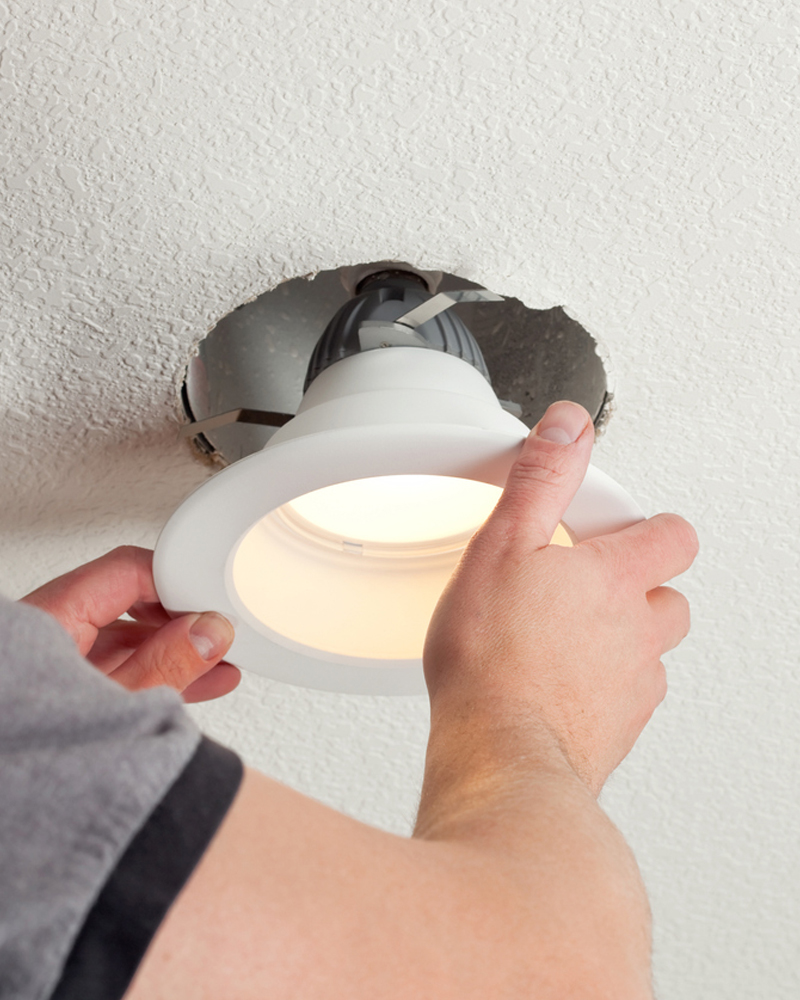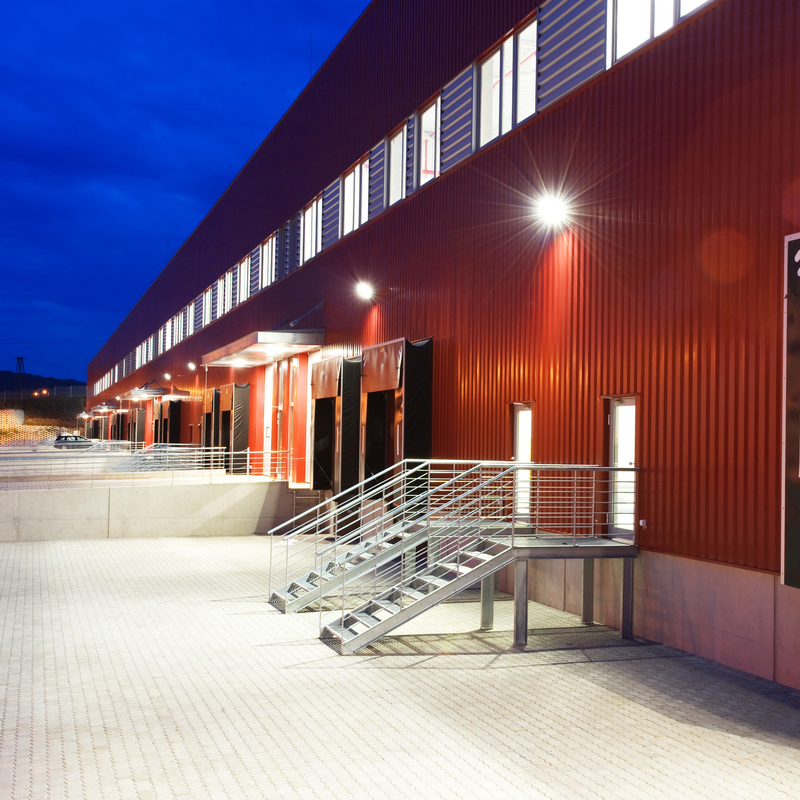
What are the Benefits of LED Lighting?
LED lighting systems reduce power use, last longer than traditional fixtures, and offer greater control over light output and performance. These upgrades are now standard across commercial and industrial projects due to their long-term value.
LED systems help lower costs, increase control, and reduce the time and labor required to keep lighting systems running.
LED Retrofit FAQs
LED retrofits are a practical way to lower operating costs, improve lighting control, and extend fixture life across commercial and industrial spaces. These projects involve replacing outdated lighting with energy-efficient LED systems that use less power and require less maintenance over time. The questions below cover what to expect during planning, installation, and system selection.
An LED retrofit replaces existing light fixtures or lamps with energy-efficient LED technology. Retrofits are needed when older lighting becomes unreliable, inefficient, or difficult to maintain. They are also used during renovations, layout changes, or upgrades that require better lighting control and lower energy costs.
LED retrofits are often chosen to improve fixture lifespan, reduce amperage use, and support newer controls without changing the entire electrical layout.
Most fixture types can be retrofitted, including:
- Ceiling Grid Fixtures: Troffers and flat panels in offices, hallways, and classrooms.
- Exterior Wall Packs: Security and perimeter lighting mounted on building exteriors.
- High Bays & Low Bays: Lighting in warehouses, gyms, or production areas.
- Pole Lights: Parking lot or site lighting mounted on exterior poles.
- Recessed Cans: Interior fixtures found in lobbies, break rooms, or corridors.
Each fixture is evaluated for condition, mounting access, and compatibility before replacement.
LED fixtures draw lower amperage than fluorescent, metal halide, or HID lighting. This allows the same circuit to support more fixtures or frees up capacity for future equipment.
In many cases, reducing load also lowers the demand placed on panels and transformers, which can extend the life of other system components. Lower power use directly translates to reduced utility costs.
Retrofit costs vary based on:
- Fixture Quantity: The number of fixtures and lamps being replaced.
- Mounting Access: Ceiling height, lift needs, and obstructions that affect reach.
- Control Requirements: Integration with sensors, zones, or dimming systems.
- Fixture Condition: Damaged or outdated fixtures may require full replacement.
- Working Hours: Some facilities require after-hours installation or phased work.
We provide quotes based on site conditions, fixture type, and access requirements.
Most retrofit projects are completed within a few days, depending on building access and fixture count. Simple one-to-one replacements may be done in a single day, while phased projects with height restrictions or coordination needs may take longer.
Our team plans all work around building hours, site conditions, and safety requirements to avoid delays or disruptions.

Schedule Your LED Retrofit Installation
We provide LED retrofit services for commercial and industrial properties across Birmingham and nearby areas. Retrofit projects often involve fixture replacement, lighting control upgrades, and circuit adjustments that require accurate planning. Our team coordinates with contractors, facility leads, and building managers to complete installations without disruption.
Every project is reviewed in advance to confirm fixture count, access needs, load requirements, and code alignment. Contact us to schedule a site visit, request a quote, or review your lighting upgrade.

